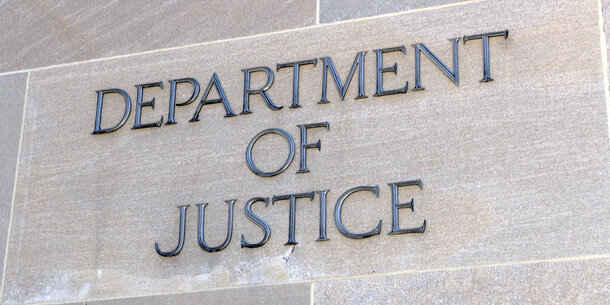As the Covid-19 pandemic grinds on across the United States, many courts are effectively shuttered, while others are holding video hearings or struggling under social distancing rules. But while many Americans are now out of work, the enforcement of court-ordered criminal fees and fines continues in much of the country. This needs to change.
Amid a sharp economic downturn sparked by the coronavirus crisis, many states, counties, and local communities are beginning to feel the impact of lost revenue. The increased pressure for revenue may spark calls for continued and even more aggressive collection of criminal fees and fines to fund courts and other aspects of government. But this is the wrong approach.
While courts have increasingly generated funding by imposing onerous financial burdens on defendants, it is a hugely inefficient practice. According to a recent Brennan Center report, The Steep Costs of Criminal Justice Fees and Fines, funding courts and other activities with fees and fines is extremely cost ineffective and wastes resources that could be used instead to improve public safety. As such, the current economic downturn should not be used to justify increased enforcement of fees and fines, as the impact of criminal fees and fines weighs heavily on those least able to pay. In three states, we found that unpaid court debts increased by $1.9 billion between 2012 and 2018. But this is just the tip of the iceberg for a national problem — one that is only getting worse amid the coronavirus crisis and making life impossible for those out of work and for the “working poor.” As many people struggle to pay for housing and food during the crisis, courts shouldn’t force an impossible tradeoff that risks landing someone in jail for trying to take care of their family.
In some places, authorities have recognized that the collection of criminal fees and fines are currently an impossible burden. Delaware, for example, has suspended active collection of all criminal fees and fines assessed. Florida’s 15th judicial district has temporarily stopped using driver’s license suspensions as a sanction for failure to appear or pay fees and fines. Idaho has postponed all court hearings to address unpaid fees and fines for 60 days. Minnesota temporarily has stopped assessing late penalties and referring past-due cases for collections. North Carolina courts have extended payment due dates for criminal infractions by 90 days. Oregon’s state courts have suspended imposing late fees, sending delinquency notices, imposing collection fees, and referring amounts due to collections. They also have halted driver’s license suspensions for failure to pay fines.
Overall, however, states, localities, and courts have been scattershot at best in their actions to reduce the burden of criminal fees and fines during the coronavirus crisis. These efforts need to be broader, more forceful, and more consistent.
As the pandemic continues to unfold, how can states and localities help reduce the impact of criminal fees and fines? Groups including the Brennan Center and the Fines and Fees Justice Center have outlined recommended actions for jurisdictions to take during the Covid-19 emergency.
Courts should immediately halt collection of all court-imposed criminal fees and fines, suspend assessments of new court debts, vacate warrants for all unpaid fees and fines, and halt accrual of interest on amounts owed. States should discontinue the counterproductive practice of suspending driver’s licenses for failure to pay court debts — and consider reinstating those previously suspended for nonpayment. Authorities also should:
- Ensure that tax refunds are not garnished
- Suspend placing liens on housing
- Prevent the denial of access to benefits
- Direct private debt collectors to suspend collection and interest accrual
- Implement systems to permit payment of court debts online, over the phone, or via the mail.
In addition, law enforcement officers should release individuals found driving on a suspended license with a warning, or with a citation and release. Municipalities should stop booting, towing, and impounding vehicles for unpaid fees and fines. And courts and jurisdictions also should “proactively and widely communicate” changes made in fee and fine enforcement to the public.
Even in normal times, the enforcement of fees and fines raises a host of issues around effective government finance and the financial burdens imposed on the poor. But there is a lot that states, localities, and courts can do to help relieve the unfairness, especially during a pandemic and an economic downturn. They can start by suspending criminal fees and fines enforcement immediately.
Mike Crowley is a former senior fellow with the Brennan Center.





